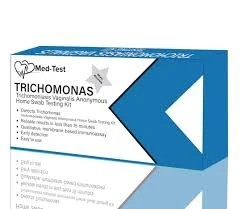
அக் . 10, 2024 14:10 Back to list
goose virus enteritis
Goose Virus Enteritis Understanding the Disease and Its Impact
Goose Virus Enteritis (GVE), a viral infection primarily affecting domesticated geese, has emerged as a significant threat to the poultry industry in various regions around the world. This disease is caused by the Goose parvovirus (GPV), which belongs to the family Parvoviridae. GVE primarily affects young geese, leading to high morbidity and mortality rates, ultimately impacting the economic stability of poultry farming operations.
Symptoms and Clinical Presentation
The clinical signs of Goose Virus Enteritis can vary depending on the age and immunity status of the birds. Infected young geese typically exhibit a range of symptoms, including severe depression, loss of appetite, diarrhea, and dehydration. In acute cases, sudden death can occur without prior signs of illness. Post-mortem examinations often reveal necrotic lesions in the intestines, particularly in the small intestine, along with swollen liver and spleen. These clinical signs highlight the aggressive nature of the disease and its rapid progression.
Transmission and Environmental Factors
GPV is primarily transmitted through direct contact between infected and healthy birds. It can also spread indirectly through contaminated feed, water, equipment, and even through the human handling of infected birds. The virus is resistant to environmental conditions, allowing it to survive for extended periods outside the host. This persistence makes biosecurity measures critical in preventing outbreaks. Crowded farming conditions, poor hygiene practices, and stress factors further exacerbate the risk of GVE transmission.
Diagnosis and Prevention
goose virus enteritis

Diagnosing Goose Virus Enteritis involves a combination of clinical observation and laboratory testing. Polymerase chain reaction (PCR) assays are commonly used to detect the viral DNA in tissue samples or feces. Serological tests can also be employed to identify specific antibodies against GPV, aiding in the assessment of flock immunity.
Preventing GVE is essential for minimizing its impact on poultry production. Effective biosecurity measures should incorporate strict hygiene practices, including regular disinfection of equipment and housing, controlling access to poultry facilities, and monitoring bird health closely. Vaccination strategies have also been developed; while they may not completely prevent infection, they can significantly reduce clinical signs and mortality rates associated with the disease.
Economic Impact and Control Measures
The economic implications of Goose Virus Enteritis are substantial. Outbreaks can lead to significant losses due to high mortality rates, treatment costs, and decreased productivity. In severe cases, entire flocks may need to be culled to prevent further spread of the virus. Consequently, the poultry industry has invested in research to develop effective vaccines and antiviral treatments, as well as educational programs aimed at improving biosecurity practices among farmers.
In addition to controlling outbreaks, continuous monitoring of GVE and other poultry diseases is essential for the sustainability of the poultry sector. Government agencies and agricultural organizations play a crucial role in providing resources and support to poultry farmers, helping them to implement best practices in disease management.
Conclusion
In summary, Goose Virus Enteritis represents a significant challenge within the poultry industry, impacting both animal health and economic viability. Understanding the disease’s transmission, symptoms, and prevention strategies is crucial for farmers and industry stakeholders. Through effective management, vigilant monitoring, and continued research, the poultry sector can work towards mitigating the risks associated with GVE and ensure the health of domestic geese and the sustainability of poultry farming.
-
China Salivation AI with GPT-4 Turbo Features
NewsAug.01,2025
-
Epic Sepsis Factories: AI-Driven Detection with GPT-4 Turbo
NewsJul.31,2025
-
Acute Salpingitis and Oophoritis AI Factory
NewsJul.31,2025
-
Premium China Bacillus Subtilis Supplier & Factory Solutions
NewsJul.30,2025
-
Premium Avermectin Supplier in China | Custom Solutions Available
NewsJul.29,2025
-
China Bacillus Subtilis Supplier - Custom Factory Solutions
NewsJul.29,2025




